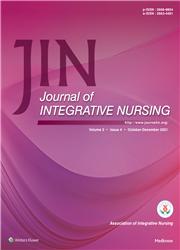Job satisfaction and organizational commitment among nurses working on temporary versus permanent jobs at a tertiary care teaching hospital, Uttarakhand, India
Q4 Nursing
引用次数: 202
Abstract
Objective: The objective of this study was to assess and compare job satisfaction and organizational commitment among nurses working on temporary versus permanent basis at a tertiary care teaching hospital, Uttarakhand, India. Materials and Methods: A total of 250 nurses (125 temporary and 125 permanent) were selected using stratified disproportionate random sampling techniques from a tertiary care teaching hospital. Sociodemographic datasheet, Job Satisfaction Survey scale, and Organizational Commitment scale were used to collect data. Results: The study results revealed that the job satisfaction score was significantly higher in permanent nurses (139.1 ± 15.4) than in temporary nurses (131.3 ± 12.2) (P < 0.001). However, temporary nurses (85.2 ± 14.4) were more committed toward organization than permanent nurses (80.0 ± 16.0) (P < 0.001). There was a significant association between nurses' job satisfaction and their gross salary (P < 0.001) and their organizational commitment with the selected profession by own will (P < 0.001). Conclusion: The present study concluded that majority of temporary and permanent nurses reported a moderate level of job satisfaction and organizational commitment. This study suggests enhancing employee satisfaction can improve organizational commitment. As well, this study's findings can serve as a valuable foundation for designing policies to enhance organizational commitment in the future.印度北阿坎德邦一家三级护理教学医院临时工与临时工护士的工作满意度和组织承诺
目的:本研究的目的是评估和比较在印度北阿坎德邦的一家三级护理教学医院临时和永久工作的护士的工作满意度和组织承诺。材料与方法:采用分层不成比例随机抽样方法,从某三级护理教学医院抽取250名护士,其中临时工125名,常住护士125名。采用社会人口学数据表、工作满意度调查量表和组织承诺量表收集数据。结果:研究结果显示,常住护士的工作满意度得分(139.1±15.4分)显著高于临时工(131.3±12.2分)(P < 0.001)。临时护士(85.2±14.4)比长期护士(80.0±16.0)更倾向于组织工作(P < 0.001)。护士工作满意度与毛工资有显著相关(P < 0.001),组织承诺与自愿选择的职业有显著相关(P < 0.001)。结论:本组护士的工作满意度和组织承诺均处于中等水平。本研究表明,提高员工满意度可以提高组织承诺。此外,本研究的发现可以作为未来设计政策以提高组织承诺的宝贵基础。
本文章由计算机程序翻译,如有差异,请以英文原文为准。
求助全文
约1分钟内获得全文
求助全文
来源期刊

Journal of Integrative Nursing
Nursing-General Nursing
CiteScore
0.40
自引率
0.00%
发文量
3
审稿时长
17 weeks
 求助内容:
求助内容: 应助结果提醒方式:
应助结果提醒方式:


